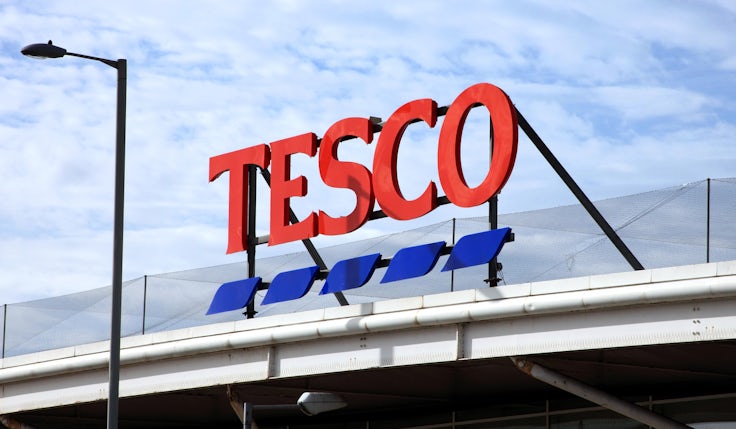Tesco claims it is winning share from Waitrose and M&S
Tesco says it has made share gains from more premium retailers for nine consecutive quarters as consumers choose the supermarket for more “treat occasions”.
 Tesco claims it is winning share from more premium retailers, such as Waitrose and M&S, as it invests behind its Finest range.
Tesco claims it is winning share from more premium retailers, such as Waitrose and M&S, as it invests behind its Finest range.
In its latest quarterly update, the supermarket says it has seen nine consecutive quarters of switching gains from premium retailers. Tesco cited Kantar data for the 12 weeks ended 14 May, which it said demonstrates share gains from M&S and Waitrose.
On a results call today (16 June), Tesco CEO Ken Murphy said the share gains were the result of customers choosing the retailer for more “treat occasions” as they look to “elevate” dine-in experiences. The supermarket’s premium food range Finest is allowing it to better tap into these occasions, he added.
Murphy wouldn’t be drawn on which consumer groups specifically were trading down, saying: “More or less everyone in the country shops with Tesco at some point during the year… You couldn’t put your finger on one particular group of customers [which have switched], it’s quite broadly traded across the customer groups.”
During the pandemic, increased penetration for Tesco brought about greater trial of its premium range, he said, with many consumers being “pleasantly surprised” by its quality.
The company has also invested “a huge amount” in upgrading and improving its Finest range over the past two years, Murphy said. Sales of the range are up 14.9%, with more than 100 new products added.
While Tesco has reported share gains from premium retailers, at the other end of the spectrum, it is still under pressure from discounters Aldi and Lidl.
According to data from Kantar, Tesco increased its sales value year over year in the 12 weeks to 14 May, but it saw its total till roll market share decrease by 0.3% since last year to 27.1%. Meanwhile, Aldi’s market share grew from 9% in the 2022 period to 10.1% this year, and Lidl’s also increased from 6.9% to 7.7%.
We feel very strongly we’re working very hard for our customers.
Ken Murphy, Tesco
Murphy said Tesco is working hard to stave off any share losses, stating the supermarket is competing for every shop “on a mission-by-mission basis.”
It is offering consumers “convenient” deals by using its Clubcard proposition to “get closer” to them and ensure it offers the best value it can, he added.
The CEO credited Tesco’s “ongoing and relentless focus on value and quality” with creating the conditions for a “strong” set of results in its most recent quarter. The supermarket generated £13.79bn in sales in the UK and Ireland for the 13 weeks ended 27 May, which represents an 8.8% increase year on year.
It also highlighted its online sales, which increased 8.2% year over year. Its share of the online grocery market also increased by 75 basis points to 37.5%.
Inflation easing off?
Tesco believes the UK is past the peak of inflation, Murphy said, as demonstrated by its ability to reduce prices on categories that had been particularly affected, such as dairy and cereal.
While Murphy acknowledged that the Bank of England’s headline rate of inflation remains “stubbornly high,” he asserted the rate of inflation which Tesco shoppers are subject to is much lower.
This is due to the “savvy” nature of Tesco customers and the supermarket having the ability to allow its consumers to trade down where they need to.
“[Shoppers] have been able to work across different product groups, different types of protein, etc, which allows them to manage the cost of their shopping basket more effectively, that means that the headline rate of inflation is not the inflation rate that the customers experience at Tesco,” he said.
Trust in supermarkets falls to nine-year low as consumers feel ‘ripped off’
With raw material prices coming down and food inflation costs to the consumer still remaining high, there have been some allegations of supermarkets and food producers “profiteering” amid the cost of living crisis.
Murphy stated that “the facts speak for themselves” on Tesco’s record, pointing to reduced profits in its most recent financial year. The supermarket generated profits of 3.8 pence in the pound in its most recent financial year; the year prior, this figure had been around 4.4 pence.
“We don’t believe that would be called profiteering; we think it’s a pretty slim margin to run a business our size on, and I think consequently, we feel very strongly we’re working very hard for our customers,” he said.








Comments